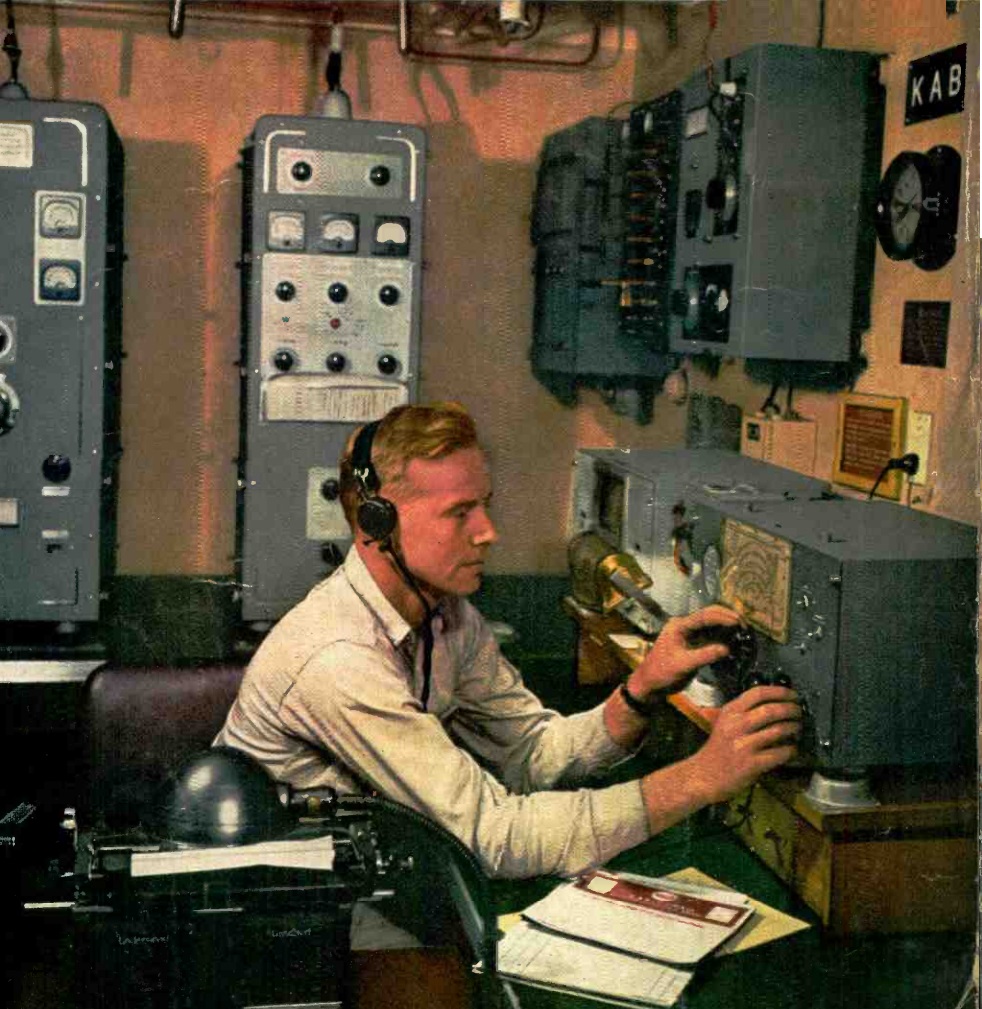 The September 1951 issue of Radio-Electronics carried this image of a Radio Officer in the Merchant Marine, aboard the Esso Tanker Bermuda. The magazine carried a good summary of the profession. At the time, Radio Officers were in demand, and for a young man seeking adventure, it was an ideal time to land such a job. Minimum pay was $300 a month, and it could be as high as $500. Work could be on a freighter or tanker, where the attitude was more casual, and there was little concern about whether the officers were shaven or well dressed. On passenger ships, things were more formal, but the pay generally was better. The magazine noted that officers in the merchant marine were exempt from the draft, but also that the service had more casualties than the armed forces in the previous war.
The September 1951 issue of Radio-Electronics carried this image of a Radio Officer in the Merchant Marine, aboard the Esso Tanker Bermuda. The magazine carried a good summary of the profession. At the time, Radio Officers were in demand, and for a young man seeking adventure, it was an ideal time to land such a job. Minimum pay was $300 a month, and it could be as high as $500. Work could be on a freighter or tanker, where the attitude was more casual, and there was little concern about whether the officers were shaven or well dressed. On passenger ships, things were more formal, but the pay generally was better. The magazine noted that officers in the merchant marine were exempt from the draft, but also that the service had more casualties than the armed forces in the previous war.
The radio officer usually had a lot of free time after his watch, and it was an ideal opportunity for him to take correspondence courses.
Most of the time, the work consisted of keeping watch on 500 kHz and also on HF. This was usually done by having two loudspeakers playing. The operator could tend to other affairs while keeping an ear open for his ship’s call sign should it come over the radio.
The article noted that most radio officers were members of a union, but with a shortage of qualified men, joining the union was easy. And job security was guaranteed by international treaties which required a radiotelegraph station and qualified operator. In addition to the FCC license, the radio officer was certified by the Coast Guard which required, among other things, that all officers be certified in first aid.
